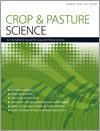Canola is a major oil crop in the Yangtze River Basin of China, and its yield and oil content vary significantly from year to year due to changes in sowing time and inter-annual climate variability. However, there have been no studies to quantify the impacts of sowing time and climate variability. Experimental data to analyse the response of canola growth to sowing date are limited to a few seasons; however, combining these data with modelling provides an efficient means to study the impact of sowing date and historical climate variation. The APSIM-Canola model was calibrated and tested using data from three field experimental sites in the Yangtze River Basin. These experiments included different cultivars and sowing dates, and recorded major phenological stages, biomass, and grain yield. After calibration of the phenological parameters and maximum harvest index, the model was able to simulate the onset of phenological stages with different sowing dates, and to explain 75% of the variation in biomass and yield caused by late sowings. However, the model overestimated canola yield under late sowing dates. The results revealed that canola yield declined linearly with late sowing time, mainly due to shortened vegetative growth stages, and varied significantly due to inter-annual climate variability. The yield potential at the study region is ∼3 t/ha, on average. However, this potential cannot be achieved in the rice–canola double-cropping system due to later sowing time after rice harvest in mid–later October. Transplanting canola may still be an effective measure against the constraint of season length to achieving higher yields of both rice and canola.
How to translate text using browser tools
13 August 2012
Phenological development and grain yield of canola as affected by sowing date and climate variation in the Yangtze River Basin of China
Sha Wang,
Enli Wang,
Fei Wang,
Liang Tang
ACCESS THE FULL ARTICLE

Crop and Pasture Science
Vol. 63 • No. 5
August 2012
Vol. 63 • No. 5
August 2012
APSIM
climate variability
phenology
sowing time
yield potential




